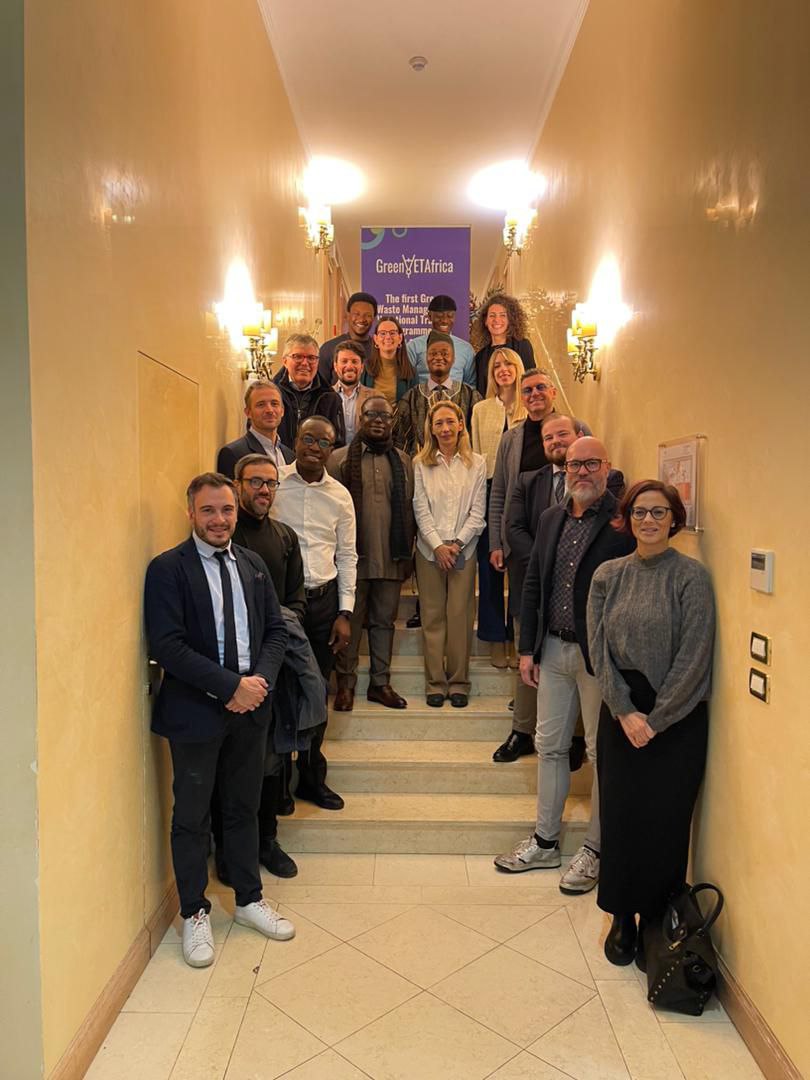Home » GreenVETAfrica Workshop EU-Africa Waste Management VET Knowledge Transfer Workshop
GreenVETAfrica Workshop EU-Africa Waste Management VET Knowledge Transfer Workshop
The amount of waste generated across the globe is a threat to the environment, ecosystems, and biomass. GreenVETAfrica EU-Africa Waste Management VET Knowledge Transfer Workshop aims to discuss waste management, sustainability, reduction strategies, and vocational training programs across Europe and the possible adoption of these strategies to the GreenVETAfrica project for Nigeria and Ghana.

The amount of waste generated across the globe is a threat to the environment and world ecosystems. The EU-Africa Waste Management VET Knowledge Transfer Workshop was held in Udine (Italy) from 22 to 24 November to discuss waste management, sustainability, reduction strategies, and vocational training programs across Europe and the possible adoption of these strategies to the GreenVETAfrica project for Nigeria and Ghana.
GreenVETAfrica is an Erasmus+ project and is co-funded by the European Union. The GreenVETAfrica vocational and educational training pave the way for Green Waste Management in Nigeria and Ghana. This transnational event organized by AREA, lead partner of the GreenVETAfrica project, brought together all project representatives, as well as relevant stakeholders of the waste management supply chain in Friuli Venezia Giulia, namely:
Simone Birgit from the Disciplinary Service for Waste Management and Polluted Sites of the Friuli Venezia Gulia Region, Alessio Scarpa, the General Manager for Environment, Safety and Plants of NET SPA, Federico Venturini from the University of Udineresponsible of the “Zero Waste and Tourism Sustainability” project and Prof. Giulio Armano, Director of the Bearzi Professional Training Centre based in Udine.
The planning of waste at the regional level, coherently with what is foreseen in Europe, includes three areas: prevention, reuse for energetic purposes, and disposal. The biggest challenge is the reduction of the waste. The point is, how do we reduce the energy we waste while managing waste? It can be achieved only through waste prevention mentioned Dr. Birgit.
Citing from the Zero Waste and Tourism Sustainability project the University of Udine is working on, Dr. Venturini mentioned that the project is based on two different aspects. The first is working on selected municipalities areas that focus on work on tourism and schools. Indeed, education is an important factor in introducing the concept of waste management to middle and high school youths, because they have little to no knowledge of waste management, and it is crucial to educate citizens to reduce waste production.
Prof. Armano underlines that the Bearzi Professional School offers various training courses, a job-requested course in mechanical, industrial automation, electrical, and carpentry:these courses can all be applied in the field of waste management. Currently, they have students joining from Ghana and Nigeria.
Net Spa, explains Dr. Scarpa, takes care of the integrated management of urban waste for 57 municipalities in the Friuli Venezia Giulia Region, with over 30 waste collection centers. Net Spa also focuses on the topic of education and raising awareness among citizens themselves, through targeted promotional campaigns and specific initiatives such as the development of the ‘Planet‘ app.
In relation to the waste management system in Nigeria and Ghana, partners highlight the complexity of the system: beginning with waste generators, collectors, aggregators, and pre-processors, to recyclers and disposers. It is a very challenging task especially for cities like Lagos in Nigeria. Lagos faces challenges related to infrastructure, massive waste generation due to its high population and traffic. These issues make waste management more challenging and difficult within the vicinity of the city.
Overall, the working table allowed for an interesting exchange of experiences and good practices that stimulated new reflections for both the Friuli Venezia Giulia representatives and the GreenVETAfrica project representatives, especially with reference to the Nigerian and Ghanaian partners. To know more, watch the full recording of the workshop.
WATCH THE WORKSHOP HERE


